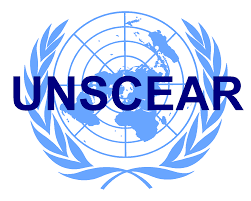VIENNA, 14 June (UN Information Service) – The United Nations Scientific Committee on the Effects of Atomic Radiation (UNSCEAR) is to update its 2013 report on the levels and effects of radiation exposure due to the nuclear accident following the great east-Japan earthquake and tsunami.
The Scientific Committee has today concluded its 65th session, held at the Vienna International Centre this week. Over 1500 scientists from 27 State Members of the Committee, four observer countries and nine observer organizations advanced the work of its scientific reports on selected evaluations of health effects and of risk inference due to radiation exposure, on lung cancer from exposure to radon, and on biological mechanisms influencing health effects from low-dose radiation exposure. The Committee also discussed its scientific evaluation of levels and trends of exposures of patients and workers to ionizing radiation. The UNSCEAR secretariat is currently running two global surveys on medical and occupational exposure. These surveys are being conducted in cooperation with the International Atomic Energy Agency, the International Labour Organization and the World Health Organization.

The Committee has agreed to begin its work in updating the UNSCEAR 2013 Report on the levels and effects of radiation exposure due to the nuclear accident following the Great East Japan earthquake and tsunami. The Chair of UNSCEAR, Hans Vanmarcke, said: “The Committee wants to finalize its assessment before the 10th anniversary of the accident in 2021 as this would be very important for the people in Japan and the whole world.”
The Committee also agreed to establish an adhoc working group to develop its future programme of work on the effects of radiation exposure.
The Scientific Committee will hold its 66th session from 10 to 14 June 2019 in Vienna, Austria.
The mandate of the United Nations Scientific Committee on the Effects of Atomic Radiation (UNSCEAR), established in 1955, is to undertake broad reviews of the sources of ionizing radiation and the effects on human health and the environment. Its assessments provide a scientific foundation for United Nations agencies and governments to formulate standards and programmes for protection against ionizing radiation. It does not deal with or assess nuclear safety or emergency planning issues.The secretariat in Vienna, which is functionally linked to UN Environment in Nairobi, organizes the annual sessions and manages the preparation of documents for the Committee’s scrutiny.
